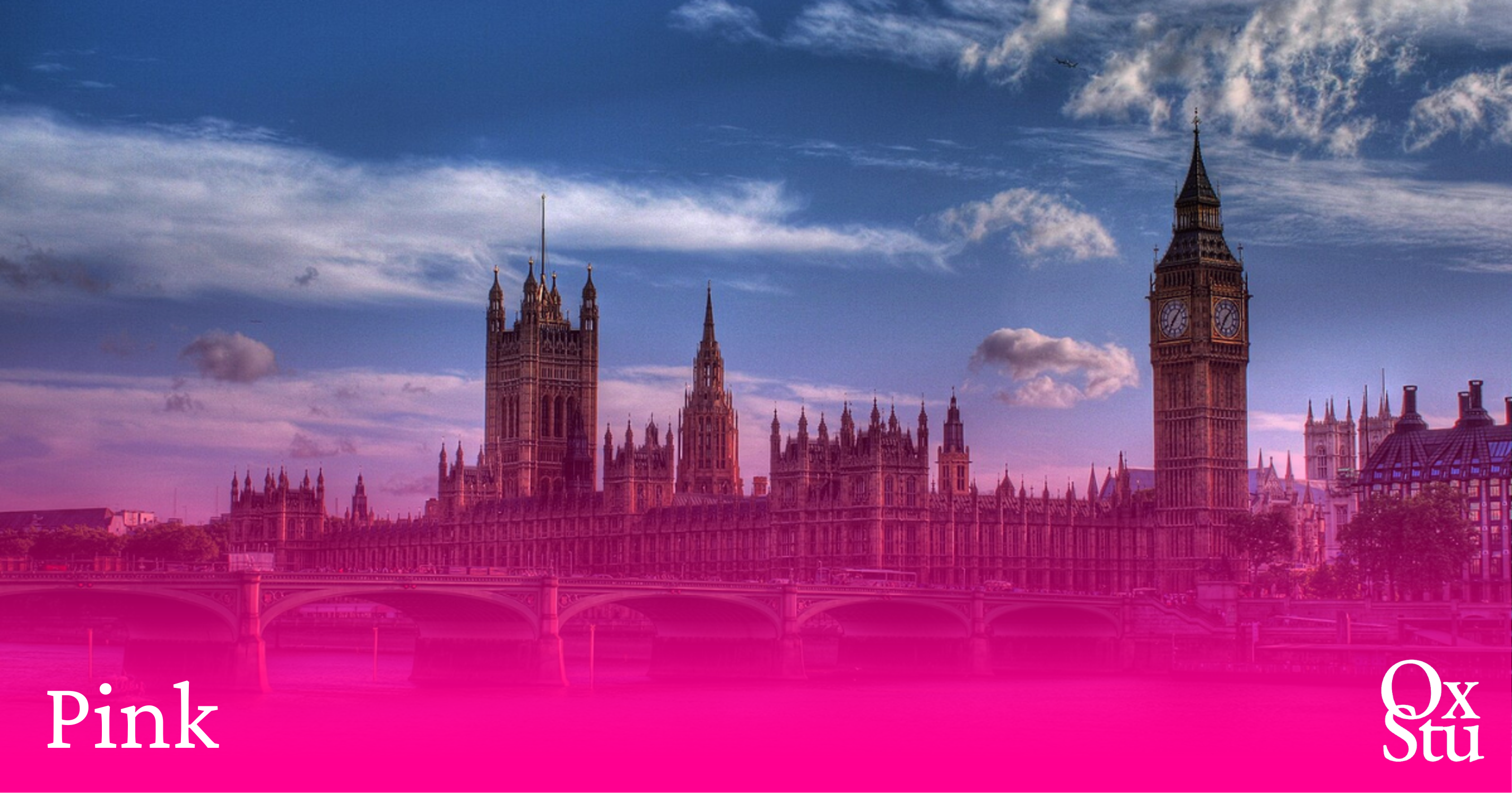
At the moment in Westminster, all eyes are on Prime Minister Rishi Sunak as to when the next General Election will be. Recent polling from the end of last year suggested that 56% of the British public think that Keir Starmer will be the next Prime Minister, and many in government are preparing for a Labour majority in the next year. Sunak has said that he expects to call a general election “in the second half” of 2024, whilst others speculate that the election will happen as soon as May.
If this is the case, then, what is the impact for LGBTQ+ individuals? The Conservative government, particularly under the leadership of Liz Truss and Sunak has been widely condemned by high profile LGBTQ+ individuals, charities and organisations for their treatment of LGBTQ+ rights. Former equalities minister Mike Freer resigned from Boris Johnson’s Cabinet in 2022, saying that his government had created “an atmosphere of hostility for LGBT people.” At the party conference, Sunak’s comments on the existence of transgender individuals were condemned by charities such as Galop and Black Lives Matter UK, whilst many other high-profile ministers made similar transphobic remarks.
Recent policy decisions have also eroded, or halted, progress for LGBTQ+ rights. In December 2022, the Scottish government under Nicola Sturgeon passed the Gender Recognition Bill, which aimed to make the process through which people in Scotland can legally change their gender easier, including by removing the requirement for a medical diagnosis of gender dysphoria. This reform is something that has been long called for by transgender activists and would’ve been a landmark piece of legislation for the LGBTQ+ community. However, for the first time ever, the UK government invoked Section 35 of the 1998 Scotland Act, which allows them to block the enactment of a bill. Similarly, guidance on treatment of pronouns and gender identity in school was released last month and is a major step back from the original promises of the document and uses language such as “gender identity ideology” and suggests that children feel pressured to “identify differently” by peers or social media.
Keir Starmer appeared to support the right-wing guidance on trans students.
In a culture of increasing transphobia and policy that negatively effects the LGBTQ+ community, it is hard to imagine how a change of government would not be a positive change. The Labour Party, after all, has strong historical roots in minority groups and the LGBTQ+ community. The Lesbians and Gays Support the Miners (LGSM) alliance, where LGBT activists supported the National Union of Mineworkers during a strike under Thatcher’s government, was fundamental in forging a legacy between the LGBTQ+ community and British Labour groups. At the 1985 Labour Party conference, a resolution of supporting LGBT rights was passed following this action.
Under New Labour, there was also significant progress for LGBTQ+ rights in terms of legislation. Between 1997 and 2010, the age of consent for gay individuals was moved to the same age to that of heterosexual individuals, and civil partnerships were created. The ban on LGBTQ+ people serving in the armed forces was also ended, as well as the extension of adoption rights to LGBTQ+ couples. Many consider the legalisation of gay marriage, which occurred under the Liberal Democrat-Conservative government to be more significant, though.
In their 2023 document on equality, they outline their ‘Equality Tree’ with five principles, one of which is banning conversion therapy comprehensively. This would be a massive achievement for human rights, as UN experts describe the practice as ‘torture’, yet it is still practiced in the UK, with 5% of people in a UK LGBT survey saying they had been offered it, whilst the figure was 10% for Christian respondents and 20% for Muslim respondents. Although the Conservatives promised to ban the practice 5 years ago, it has still not been enacted, and there was no reference to it in the King’s Speech. The introduction of this legislation would be an overdue, yet profound, step forward for LGBTQ+ rights.
The party changed its stance, moving away from supporting gender self-identification.
However, many other policies that campaigners are pushing for have not been mentioned by Labour. The ‘Equality Tree’ document goes on to mention other strategies such as being ‘tough on crime’ and being an ‘international leader’, but there are no references to, for instance reforming the gender recognition process or improving transgender healthcare. It seems that specifically for transgender individuals Labour might not be the change that it is hoped to be. In April, Keir Starmer appeared to support the right-wing guidance on trans students, saying to the Sunday Times that he would “of course” want to know if his child had come out at school, and that the vast majority of parents would. Starmer also entertained reductive questions about biological sex, saying “for 99.9 per cent of women, it is completely biological … and of course they haven’t got a penis.” Over summer of last year, the party changed its stance, moving away from supporting gender self-identification.
Despite the ‘Equality Tree’ document stating that “New Labour’s record demonstrates that Labour does not lose votes when standing up for equality”, it is clear that voting intention and remaining somewhat ‘neutral’ rather than advocating for LGBTQ+ rights is Starmer’s strategy at the moment. With the current climate of increased volatility surrounding transgender rights, this appears more like an attempt to retain votes, and raises questions for the future of LGBTQ+ rights under a Labour government. Perhaps, when a majority is secured by Starmer, he will be more emboldened to take a stance supporting the community. Or, perhaps, this neutrality will continue, doing little to reverse the legislative and social detriment that Conservatives have caused. Whilst an improvement from the Conservative government, the jury is still out on how much an incoming Labour government led by Starmer would actually advocate for LGBTQ+ rights.



